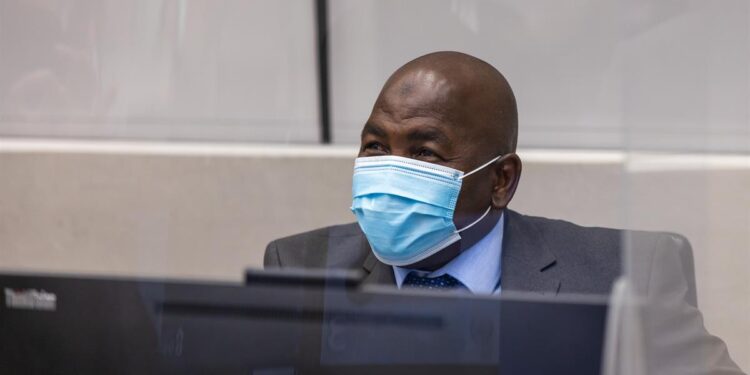By Waceke Njoroge
bnjoroge@jfjustice.net
The confirmation of charges hearing in Mahamat Said Abdel Kani’s case before the International Criminal Court has been concluded and the case is now set for the next stage.
The hearing, which ended on Friday, October 14, 2021, was before Judge Rosario Salvatore Aitala (presiding), Judge Antoine Kesia-Mbe Mindua, and Judge Tomoko Akane in Pre-Trial Chamber II at The Hague.
The confirmation of charges hearing is for the purpose of determining whether there is sufficient evidence to establish substantial grounds to believe that the suspect committed each of the crimes he/she is charged with. If the judges confirm the charges brought by the Prosecutor, then the case proceeds to trial.
Pre-Trial Chamber II has 60 days to deliberate on the matter and deliver its written decision.
The Prosecutor, the legal representative of the victims, and the defence made their submissions from Tuesday, October 12, 2021, when the hearing started.
Notably, this was the first time Karim Khan was acting in the position Prosecutor in the chamber as previously he was a defence attorney.
The pre-trial chamber is required to confirm whether there is sufficient evidence to commit Kani to a trial chamber for the charges presented. It can decline to confirm the charges if it determines that there is insufficient evidence and stop the proceedings against him. The court can decide to adjourn the hearing and request the Prosecutor to provide further evidence, conduct further investigations, or amend any charge for which the evidence submitted appears to establish that a crime other than the one charged was committed.
Kani, a national of the Central African Republic (CAR), is suspected of being responsible for crimes allegedly committed in Bangui (CAR) in 2013. He is suspected of crimes against humanity (imprisonment or other severe deprivation of liberty; torture; persecution; enforced disappearance and other inhumane acts); and war crimes (torture and cruel treatment).
The government of CAR referred the situation to the ICC on May 30, 2014, saying the situation had persisted since August 1, 2012. Kani was surrendered to the ICC by the authorities on January 24, 2021, on account of an ICC warrant of arrest issued on January 7, 2019. His initial appearance before the court took place on January 28 and 29, 2021.
Led by Michel Djotodia, the Séléka were a coalition of several previously uncoordinated political factions and armed groups, including the Convention des Patriotes pour la Justice et la Paix Fondamentale (CPJP-F), predominantly composed of Muslims.
The Séléka, of which Kani was a commander, used members of the local population, known as indicateurs, to identify the houses of perceived supporters of former President François Bozizé, such as retired military men, gendarmes, policemen, civil servants, or relatives. Notably, Muslims and Muslim houses were spared.
The Séléka targeted the civilian population based on religious grounds. Christians were considered supporters of the former government. Other affiliations included government employees, ethnicity, Bozizé’s Gbaya tribe, and specific neighbourhoods.
Apart from Kani’s, the case of Alfred Yekatom and Patrice-Edouard Ngaïssona is also before the ICC. Both cases arise from the situation in the Central African Republic. Yekatom and Ngaïssona are Anti-Balaka leaders and their case is at the trial stage. Yekatom was surrendered to the ICC on November 17, 2018, while Ngaïssona was arrested by the authorities of the French Republic on December 12, 2018, and transferred to the ICC Detention Centre on January 23, 2019. Their cases were joined on February 20, 2019.
Other cases from the violence in CAR will be handled by the Special Criminal Court in the capital, Bangui.







